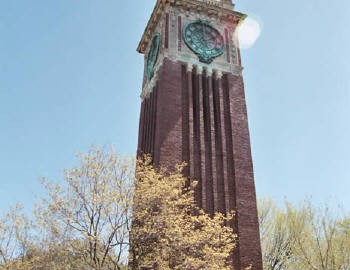Brown University’s Engaged Scholar Program
The Engaged Scholars Program (ESP) at Brown University is a major initiative that combines student coursework with out-of-class learning experiences such as community service and research projects. The purpose of the ESP is to integrate the education of students across multiple disciplines in the context of real-world, non-academic work environments. The Program‘s intent is to advance the scholarship of participating students by enabling them to foster positive social change on pressing issues that bear upon communities and society in general.
All participants stand to gain from involvement in the Program. Students benefit because they’re better able to connect academic theory with actual practice. They gain first-hand experience through work with community partners seeking to remedy social problems. Faculty members benefit from the University’s commitment to the development and teaching of specialized ESP courses derived from ESP project experiences. A community partner benefits from the effort contributed to achieving the partner’s goals by Brown University students, faculty, and funds.
The ESP is offered through Brown’s Howard R. Swearer Center for Public Service, which practices and promotes community-engaged scholarship in general. The Swearer Center seeks to address complex social challenges locally and globally through vehicles such as the ESP and its participating faculty, students, and community organizations. Students and faculty bring their knowledge and expertise to bear on actual problems. They do so in collaboration with community advocates, field professionals, and direct beneficiaries who transmit their own knowledge and experiential wisdom back to the students and faculty. Each year, the Swearer Center works with nearly 2,000 ESP students and more than 100 community partners, about half of which are located in the greater Providence, Rhode Island area, the location of Brown’s main campus.
The ESP operates through 12 undergraduates departments, an increase of over 50% this year alone. The currents list of participating departments includes Anthropology, Business, Entrepreneurship and Organizations, Contemplative Studies, Education Studies, Engineering, Environmental Studies & Sciences, Independent Concentrations, Political Science & Public Policy, Sociology, Theater Arts & Performance Studies, and Urban Studies. Additional departments are expected to join each year over the next decade.
The social science concentrations are a natural fit for the Program, but, surprisingly, it is also proving to be popular with engineering students, perhaps because hands-on experience is highly valued by employers in their anticipated fields. ESP engineering students must complete an extended practicum, such as an internship or job, which has demonstrable societal benefit. ESP requirements also include an elective course outside of the Engineering Department that addresses commonalities among the fields of engineering, science, and sociology. A capstone design or research problem, the solution to which carries substantial societal benefit, is also required. A major benefit of the Program for engineering students is that they become part of the ESP interdisciplinary community of undergraduate scholars that meets regularly for workshops and lectures as well as the open exchange of ideas on the progress and ramifications of field projects.
Another department that may seem unlikely to be an enthusiastic participant is Theater Arts & Performance Studies. The Department encourages students in this field of concentration to study performance theory while working with communities to create socially engaged performances that address critical social issues. This helps communities draw attention to a range of social problems. Simultaneously, it helps students learn that stagecraft and performance are best when they are soundly based in the reality and complexity of human behavior.
IvySelect, a private college admissions consulting firm, has successfully assisted many students who sought acceptance at Brown. For students interested in a hands-on, practical, engaged scholars approach to education like Brown’s, we provide expert guidance and application development assistance. Our expertise extends to all top-tier institutions due to our success in assisting students gain admission to many of the best institutions, including Harvard, Yale, Penn, Dartmouth, Princeton, Columbia, Cornell, Stanford, MIT, Cal Tech, Amherst, Williams, Swarthmore, Northwestern, Chicago, Oxford (U.K.), Johns Hopkins, Duke, Washington University in St. Louis, Rice, Georgetown, Emory, Bowdoin, Colgate, Hamilton, USC, Berkeley, UCLA, NYU, Wesleyan, Wellesley, Vassar, Barnard, Boston College, Notre Dame, Vanderbilt, Virginia, Michigan, Texas, North Carolina, Wisconsin, Wake Forest, Tulane, Boston University, Rochester, and many others.





